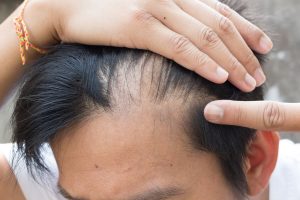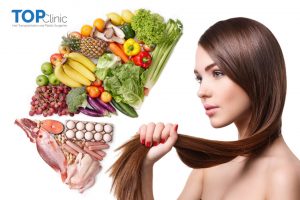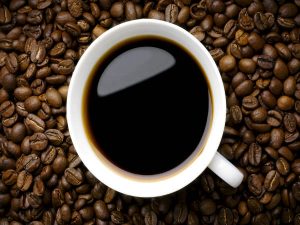It’s not easy trying to eat healthily. There’s constant temptation around us every minute of the waking day. Maybe you’ve got a sweet tooth or maybe it’s a large bag of salty chips that is your daily nemesis. Healthy eating is hard. For most, it’s a near impossible decision to keep walking past the burger shop and through the fog of succulent fried beef and bacon (I swear they pump out that smell on purpose!) and instead go into the healthy vegan restaurant. As The Simpson’s famously said, ‘you don’t win friends with salad’.
There are, however, real health implications for eating unhealthily. They range from the obvious weight issues to the really big problems, the hidden time bombs of clogged arteries and high blood pressure amongst many more. One repercussion of eating unhealthily that most people won’t immediately think of is how it affects your hair.
The Effect Of Fad Diets On Hair Quality
Nutrient deficiencies can be caused by fad or crash diets. These deficiencies can also lead to hair loss as these diets can lack proper nutrition. When a deficiency exists, the body will send nutrients to vital organs first and to the hair last.

The body needs a certain amount of calories. If someone on a diet consumes far fewer calories than they need, this creates stress. The stress from restrictive diets causes more follicles than normal to go into the telogen phase – the resting phase of the hair cycle. Without the correct amount of calories, the body cannot support the follicles growth phase.
The growth phase starts again once the stress has passed and new hairs push out the old. If a large percentage of the hair was in the telogen phase, this results in massive hair loss. Often, the hair loss occurs months after the dieter begins eating normally! This type of hair loss is called telogen effluvium.
Low-Carb diets can also affect hair loss. Carbohydrates are calorically dense. By removing large quantities from the diet it removes a significant source of calories. Vitamin and mineral deficiencies can be created by these types of diets.
What To Eat To Keep Your Hair Healthy
Diet is of course not the only reason for hair loss. Hair strands have an average life of seven years with old hairs eventually shedding to be replaced by new hairs. There are roughly 150,000-200,000 hairs on our heads and we shed around 100 a day; that’s 36,000 in a year on average! It regenerates at approximately the same rate. When it doesn’t regenerate at the same rate, that’s when problems can arise.
The number one reason for hair loss is stress. Another big reason is iron deficiency. Hormonal factors are also a variable especially women when they are affected by menopause. That brings us to another very important reason for hair loss: age. By the time you’re around 37 or 40, the natural effects of ageing on hair regrowth really start to kick in.
Food To Eat To Help Your Hair Regrow

Veggies also play a part. Peas, carrots, cauliflower, and soybeans are good sources of vitamin B6, biotin, and folate, which help slow hair loss and encourage growth.
Coffee, For A Fuller Head Of Hair?
Your morning cup of coffee can also have a positive effect of keeping ahead of healthy hair
A small amount of caffeine help decreases the follicle-damaging hormone known as dihydrotestosterone or DHT for short. DHT is thought to be one of the main culprits for male pattern baldness. DHT is a type of androgen which is an important hormone in the body’s self-regulation. In people with a genetic predisposition for baldness, the DHT androgen binds to bind to receptors in your hair follicles and causes the process of follicular miniaturization. This results in the follicles shrinking, weakening and eventually die.
Caffeine is known to help increase blood circulation to the scalp which promotes healthy hair follicles by allowing more of the nutrients to reach the follicles blocked by the DHT. It also causes hair cells to produce more ATP (adenosine troposphere) which is a form of energy that encourages hair to grow.
Remember though, don’t use this as an excuse to drink your favourite wake up beverage all day long. Consuming too much caffeine can actually negatively affect your hair growth cycle by slowing it down. One way to bypass this problem is to apply caffeine topically. Hair and scalp masks can often have extra caffeine added to them to really help nutrients get back to the hair.
If you’re worried about hair loss and want to know if your diet is the reason, come and pay a visit to the Toronto Hair Transplant Surgeons. Our specialists are highly trained and will be able to assist you with your concerns and help you make plans to move you forward towards a healthier life and a healthier head of hair.




